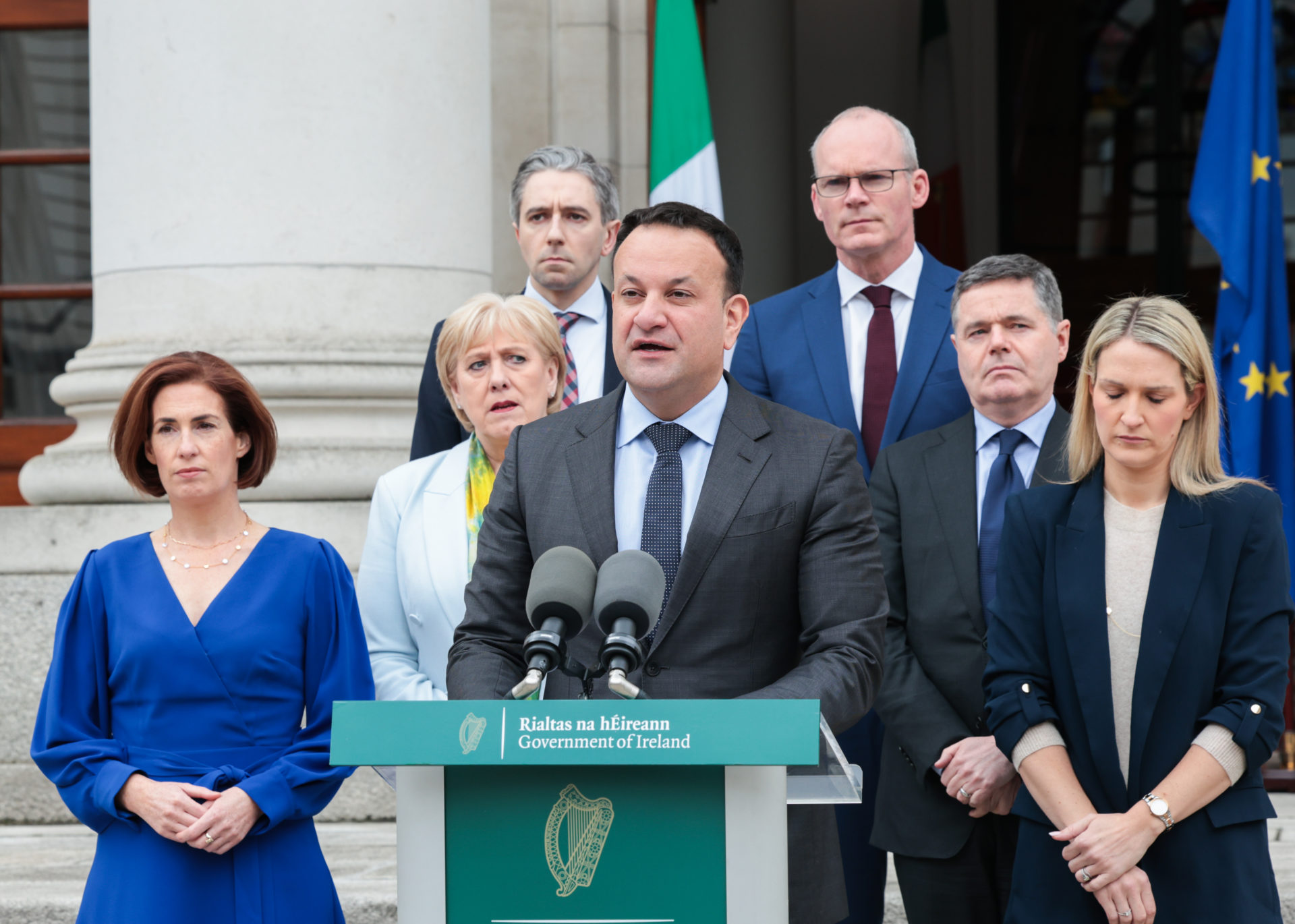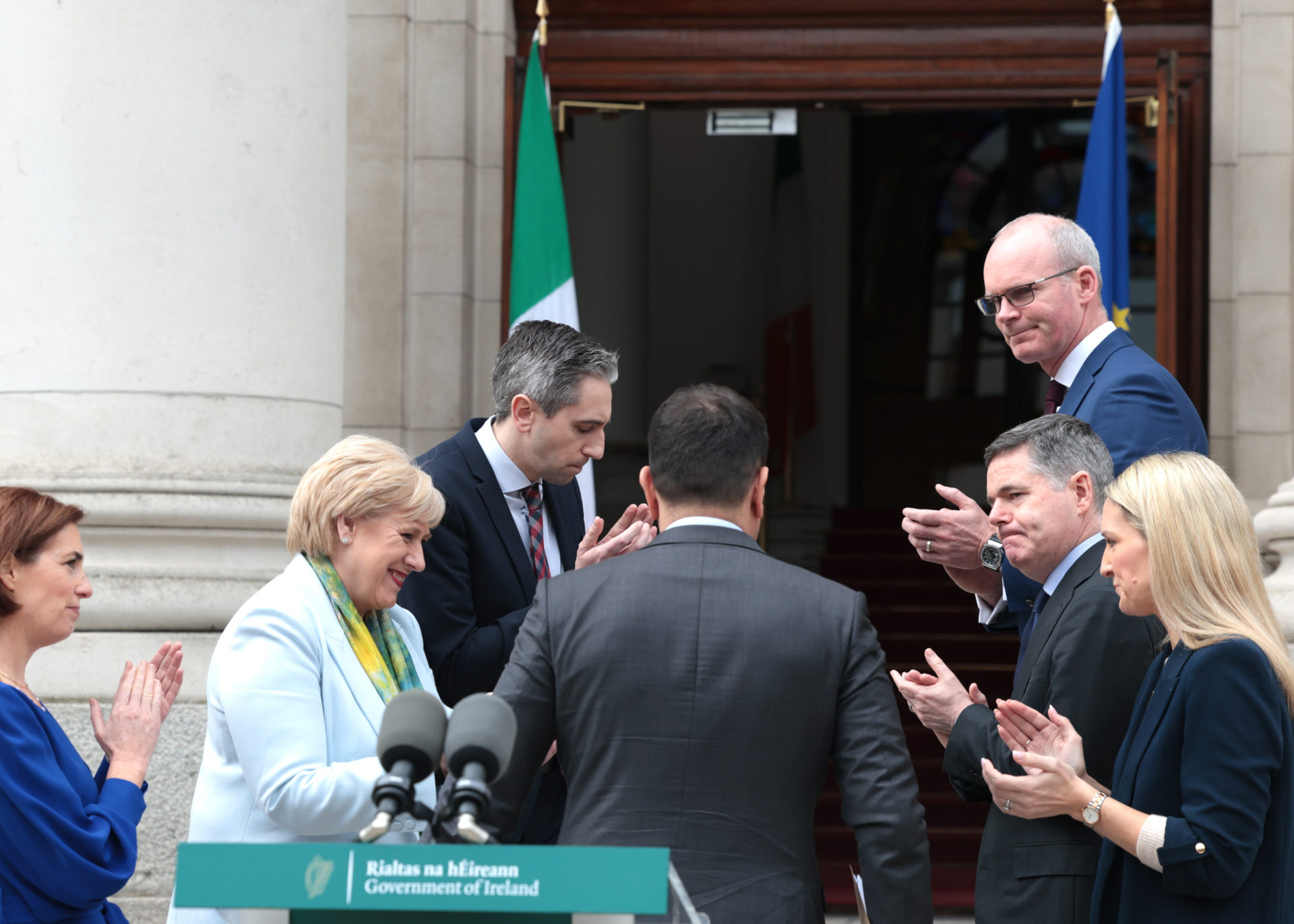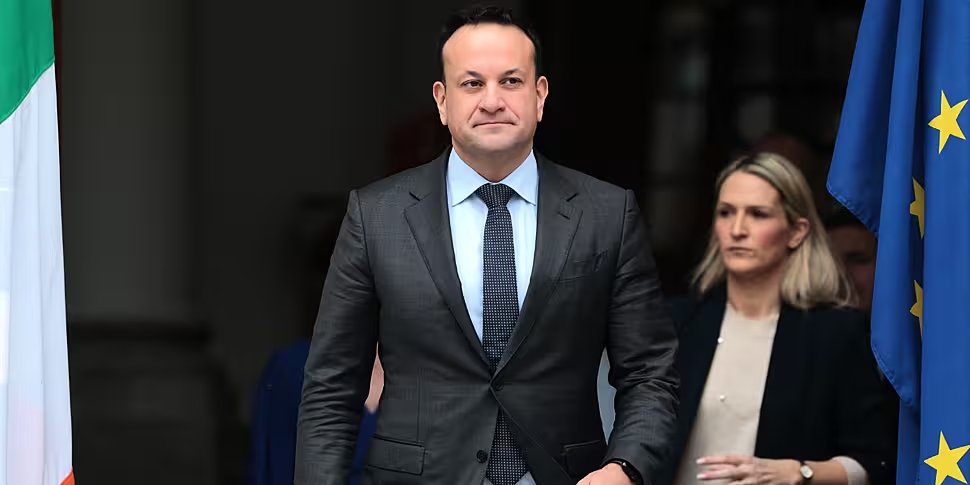Leo Varadkar has said his reasons for resigning as Taoiseach are ‘both personal and political’ in an emotional speech outside Leinster House.
The 45-year-old has officially announced his resignation after the shock move caused ructions in political circles this morning.
Speaking in Dublin, Mr Varadkar said he understands that the decision will “come as a surprise to many and a disappointment to some”.
“I hope you will at least understand my decision,” he said.
“I know that others will, how shall I put it? Cope with the news just fine. That is the great thing about living in a democracy.”
 Leo Varadkar announces his resignation outside Leinster House, 20-03-2024. Image: Leah Farrell/RollingNews
Leo Varadkar announces his resignation outside Leinster House, 20-03-2024. Image: Leah Farrell/RollingNewsMr Varadkar informed Government leaders of the move at Cabinet this morning.
That followed frantic meetings at Government Buildings and intense speculation over his future throughout the morning.
“When I became [Fine Gael] party leader and Taoiseach back in June 2017, I knew that one part of leadership is knowing when the time has come to pass on the baton to someone else – and then having the courage to do it,” Mr Varadkar said in his speech.
“That time is now.
“So, I am resigning as president and leader of Fine Gael effective today, and will resign as Taoiseach as soon as my successor is able to take up that office.”
Elections
Mr Varadkar said he has asked the Fine Gael Executive Council to aim for a new leader to be elected in advance of the party’s the Ard Fheis on Saturday, April 6th.
He said this would allow the Dáil to elect a new Taoiseach when politicians return after the Easter break.
He said the timeline would give his successor a full two months to prepare for the Local and European Elections and “up to a year” for the next general election.
 Leo Varadkar is applauded off the podium by his Fine Gael colleagues after announcing his resignation outside Leinster House, 20-03-2024. Image: Leah Farrell/RollingNews
Leo Varadkar is applauded off the podium by his Fine Gael colleagues after announcing his resignation outside Leinster House, 20-03-2024. Image: Leah Farrell/RollingNews“There is never a ‘right time’ to resign high office,” said Mr Varadkar.
“However, this is as good a time as any - Budget 2024 is done and negotiations have not yet commenced on the next one.
“The institutions of the Good Friday Agreement are working again and our trading relationship with the United Kingdom, in the post-Brexit era, is settled and stable.
“My reasons for stepping down now are personal and political, but mainly political.”
He said he still believes the current Government can be re-elected and insisted, “that would be the right thing for the future of our country”.
“After careful consideration and some soul-searching, I believe a new Taoiseach will be better-placed than me to achieve that,” he said.
“To renew and strengthen the top team, to refocus our message and policies and to drive implementation.
“After seven years in office, I am no longer the best person for that job.”
"Politicians are human beings"
Mr Varadkar became visibly emotional when he began to speak about his time in Cabinet and as Taoiseach, noting, “I have learned so much about so many things, met people who I would never have got to meet, been to places I would never have seen, both home and abroad.
“I am deeply grateful for it and would wholeheartedly recommend a career in politics to anyone considering it.
“However, politicians are human beings. We have our limitations. We give it everything until we can’t anymore and then we have to move on.”
He said he does not have another job or position lined up for his future career.
“I know, inevitably, there will be speculation as to the ‘real reason’ for my decision,” he said.
“These are the real reasons – that’s it.
“I have nothing else lined up or in mind, no definite personal or political plans, but I am looking forward to having the time to think about them.”
Career
Mr Varadkar was first elected a Fine Gael TD for Dublin West in 2007.
When Fine Gael took power in 2011, he was appointed Minister for Transport, Tourism and Sport.
After spells in Health and Social Protection, he was elected leader of Fine Gael and appointed Taoiseach in 2017.
Following the 2020 General Election, Fine Gael formed a coalition with Fianna Fáil and the Green Party.
For two years, Mr Varadkar served as Micheál Martin’s Tánaiste, before becoming Taoiseach again in late 2022.
His decision to step down comes just over a week after the Government was defeated in twin referendums on family and care.
The care referendum saw the highest ever ‘No’ vote in Irish history, with nearly three-in-four people rejecting it.
The family amendment was also roundly rejected, with more than two-in-three people voting ‘No’.









